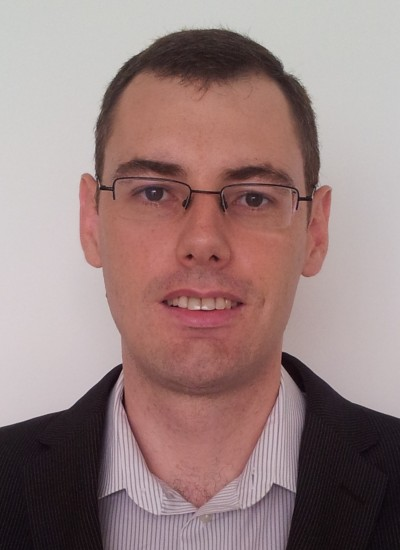Keynote Speaker - William Robson Schwartz
Smart Surveillance at Large Scale
William Robson Schwartz
Federal University of Minas Gerais, Brazil
Computer Vision problems applied to surveillance have been studied for several years aiming at finding accurate and efficient solutions, required to allow the execution of surveillance systems in real environments. The main goal of such systems is to analyze the scene focusing on the detection and recognition of suspicious activities performed by humans in the scene, so that the security personnel can pay closer attention to these preselected activities. Several challenges are present on surveillance, among them are the large amount of data that need to be processed due to the large number of cameras capturing data; low quality of the acquired data due to the small size of the objects in the videos; and the strong relationship between the problems in this domain, in which the usage of a poor solution to solve one problem might affect the solution of other problems. To accomplish that, several problems have to be solved first, for instance background subtraction, person detection, tracking and re-identification, face recognition, and action recognition. Even though each of these problems has been researched in the past decades, they are hardly considered in a sequence, each one is usually solved individually, preventing them from being used in real surveillance systems. This talk will discuss the main concepts and problems related to smart surveillance and present the Smart Surveillance Framework, a framework developed to help researchers working on the surveillance domain.

William Robson Schwartz
William Robson Schwartz is a Professor in the Department of Computer Science at the Federal University of Minas Gerais, Brazil. He received his BSc and MSc degrees in Computer Science from the Federal University of Parana, Curitiba, Brazil in 2003 and 2005, respectively. He received his PhD degree in Computer Science from the University of Maryland, College Park, USA in 2010. Then, he spent one year in the Institute of Computing at the University of Campinas as a Postdoctoral researcher. He is a CNPq researcher PQ2. His research interests include Computer Vision, Surveillance, Forensics, and Biometrics, with focus on problems of face spoofing and recognition, human detection, and person re-identification. He has served as a Program Committee member for conferences such as IEEE International Conference on Automatic Face and Gesture Recognition (FG), IEEE Workshop on the Applications of Computer Vision (WACV) and Asian Conference on Computer Vision (ACCV). He coordinates several research projects sponsored by the Brazilian Ministry of Sports and funding agencies such as CNPq and FAPEMIG, focusing mainly on large scale surveillance.



